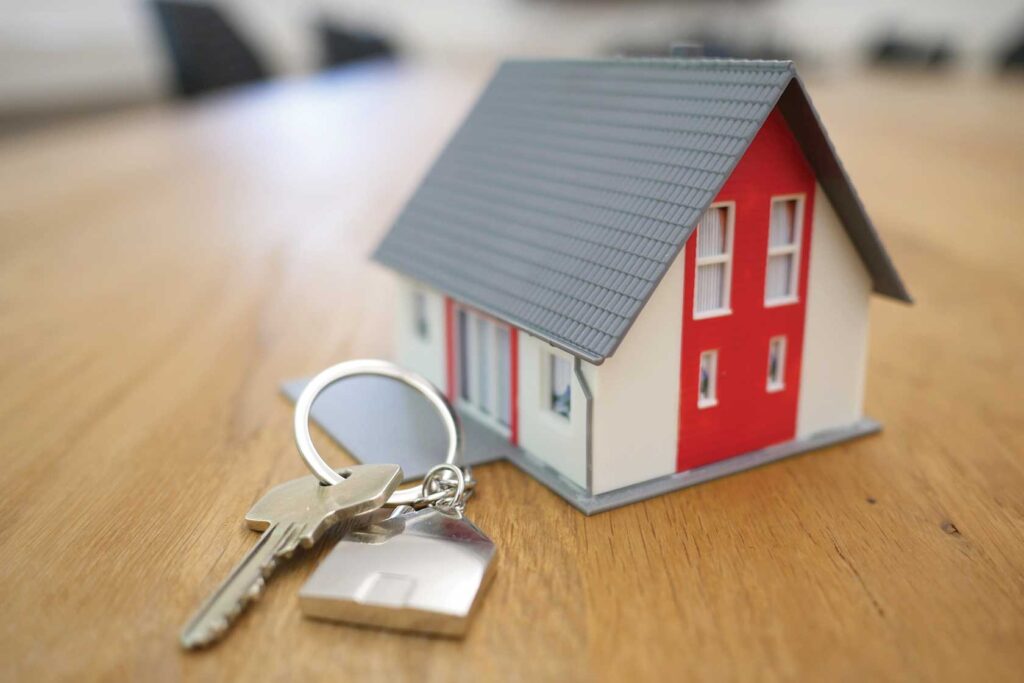
The road to homeownership has historically been challenging for Black and brown people. Now, weather-related natural disasters threaten to put further strain on homeowners, according to a 2024 report by the National Association of Real Estate Brokers.
Published in November and authored by housing finance and urban policy expert James H. Carr and housing finance and urban policy consultant Michela Zonta, the State of Housing in Black America report found that climate change impacts Black homeowners and has the potential to widen the racial wealth gap.
“The significantly higher risk from natural disasters faced by Black communities highlights a need for policies that ensure access to affordable and climate resilient housing,” the report reads. “This is crucial for addressing longstanding investment disparities and environmental racism effects.”
NAREB has published the report on Black homeownership every year for over a decade but only began reporting on the effects of climate change on homeowners in 2022, an addition Courtney Johnson Rose, president of the organization, said was essential.
“Because of how difficult it is for us to get into homeownership, our report has to focus on climate change … because we have to look at preserving the wealth that is very difficult for us to actually get,” Johnson Rose said. “But if it’s difficult for us to get and then we’re susceptible to natural disasters, we have to recognize that and start to figure out, how … we mitigate risk around that.”
Already, Black people experience disadvantages when trying to acquire properties or in owning them. In the report, the authors found that the rate of Black homeownership in 2023 was 45.7% compared to 74.3% of white households, a disparity that has continued to worsen in recent years.
Historical systems such as redlining and current discriminatory practices also play a role in the challenges faced by Black homeowners, according to the report. Black mortgage applicants have high denial rates and are given higher-cost home loans.
“The housing finance system is the main factor that keeps African Americans from home ownership,” Johnson Rose said.
She cited high debt-to-income ratios, caused by a lack of generational wealth and unequal wages, as one of the reasons. In 2022, Black women made 66.5 cents for every dollar paid to white men, according to the Institute for Women’s Policy Research.
NAREB’s report suggests that the looming threat of increased weather-related disasters only stands to heighten the challenges Black people, many of whom live in “low-lying areas prone to flooding” with “scarce economic resources,” face in homeownership.
Approximately 21% of Black Americans reside in locations highly exposed to hurricanes, nearly double the percentage of white Americans. Additionally, Black people are more likely than their white counterparts to live in areas prone to wildfires, river flooding, and heat waves.
In a statement, Johnson Rose said the report revealed a “state of emergency” as Black homeownership has not increased in recent years. The additional analyses on the effects of climate change also represent a sobering reality about the future of Black homeownership.
“The growing frequency and intensity of climate disasters exert immense strain on the deteriorating infrastructure of long-neglected Black neighborhoods in cities like New Orleans, Louisiana, Houston, Texas, and Jackson, Mississippi,” the report reads. “These areas have experienced catastrophic floods that have disproportionately impacted low-income Black communities.”
This year, two hurricanes, Milton and Helene, devastated swaths of the South and Southeast parts of the country, laying waste to homes and causing hundreds of billions of dollars in damages. As a result of recurring disasters, Texas and Florida, high-risk areas where weather-related damage to properties was prevalent, saw significant increases in insurance premiums of 46% and 68% respectively from 2021 to 2023.
Such hikes have had adverse effects.
“We find that economically more vulnerable populations are seeing a larger increase in mortgage delinquency rates in response to insurance premium increases,” said Shan Ge, assistant professor of finance at New York University. “And our research will suggest that Black households are experiencing a larger financial impact from increasing insurance premiums,” Ge added.
Though Ge’s research did not look at Black households specifically, existing studies show that Black households are more vulnerable economically. Along with insurance hikes, climate change also has the potential to lower housing costs, which disadvantages homeowners.
Ge said homeowners could prepare for extreme weather events by enhancing their properties to be able to withstand climate change-related weather events.
“That helps lower insurance premiums as well, and that helps the household to be more resilient if they want to cut back their insurance premium by cutting down their insurance coverage amount.”
However, weatherproofing a home can be costly.
Johnson Rose said it may still be too early to say how homeowners can secure their homes for increasing climate disasters. In the meantime, NAREB will continue to develop its findings on the effects of climate change on homeownership in the coming years.
“As the community focuses on it,” Johnson Rose said, “it may become more of an issue that we need to continue to actually address and expand our research on.”






